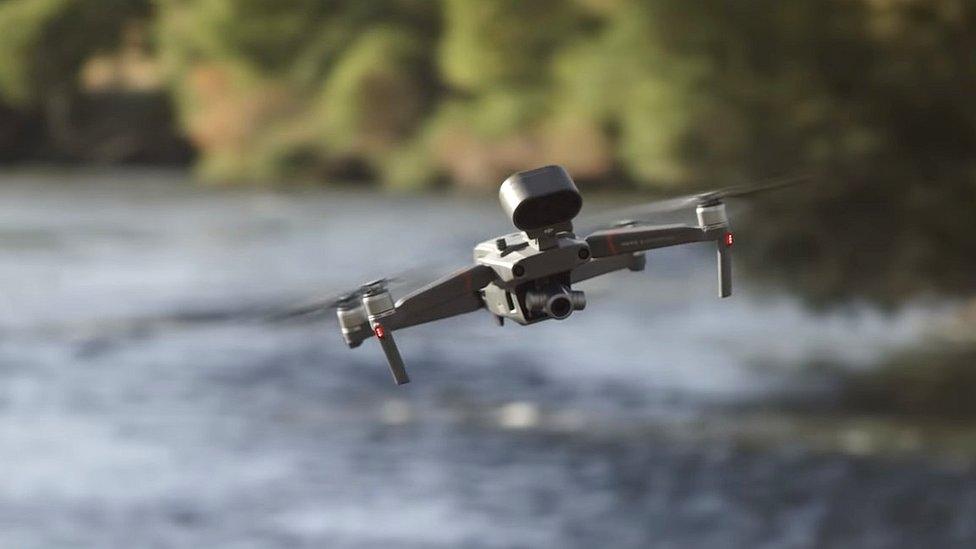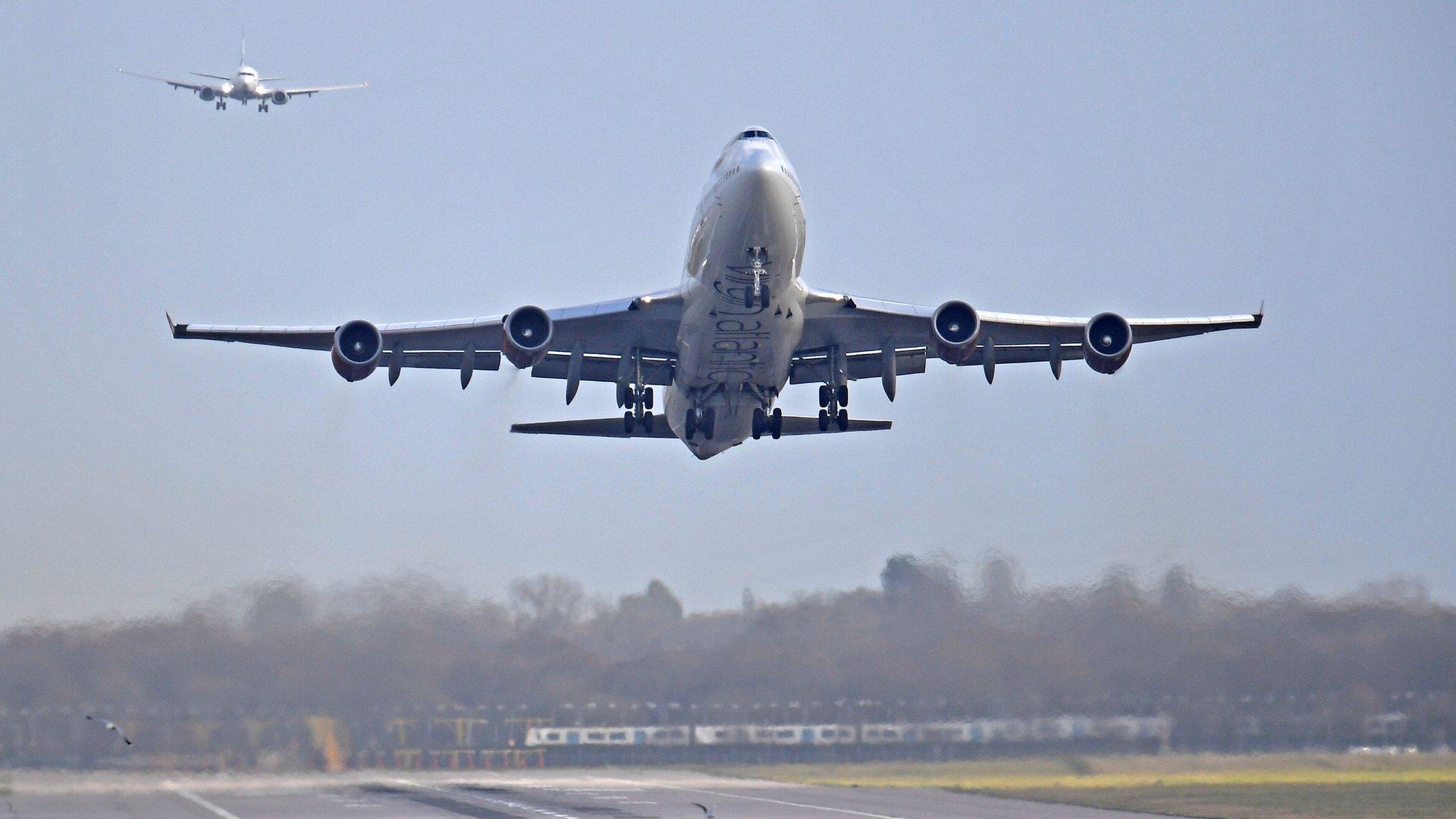DJI drones to come with plane detection
- Published

Drone-maker DJI has pledged to add plane and helicopter "detection" features to its consumer drones, to reduce the risk of collisions.
Some of DJI's industry-focused drones already have the feature built in but it has now pledged to add it to all drones weighing more than 250g (9oz).
Its AirSense system picks up location signals broadcast by other aircraft.
The drone pilot will then be warned that a plane or helicopter is nearby so they can take any necessary action.
Visual sighting
AirSense uses an existing technology called automatic dependent surveillance-broadcast (ADS-B).
Aircraft transmitting ADS-B signals send out their satellite location data, altitude and other positioning information.
ADS-B receivers can pick up these signals, allowing them to track an aircraft without radar or a visual sighting of the plane.
"AirSense can detect airplanes and helicopters from miles away, farther than a drone pilot can hear or see them, and displays their locations on the screen of the pilot's remote controller," said DJI in a blog, external.
Travel disruption
AirSense will not force a drone to land if a plane is detected. Instead, the operator will be alerted on their remote control handset.
The US Federal Aviation Administration (FAA) wants a majority of planes and helicopters to transmit ADS-B signals in controlled airspace by January.
DJI's latest drones already have safety features such as geo-fencing, which stops the drone flying into restricted airspace such as an airport.
In 2018, a drone sighting on the airfield at Gatwick airport caused major travel disruption. The pilot of the drone has not been found.
DJI stressed that "there has never been a confirmed collision between a drone and an airplane" but said drones had struck low-flying helicopters "at least twice".
- Published15 May 2019

- Published17 January 2019
